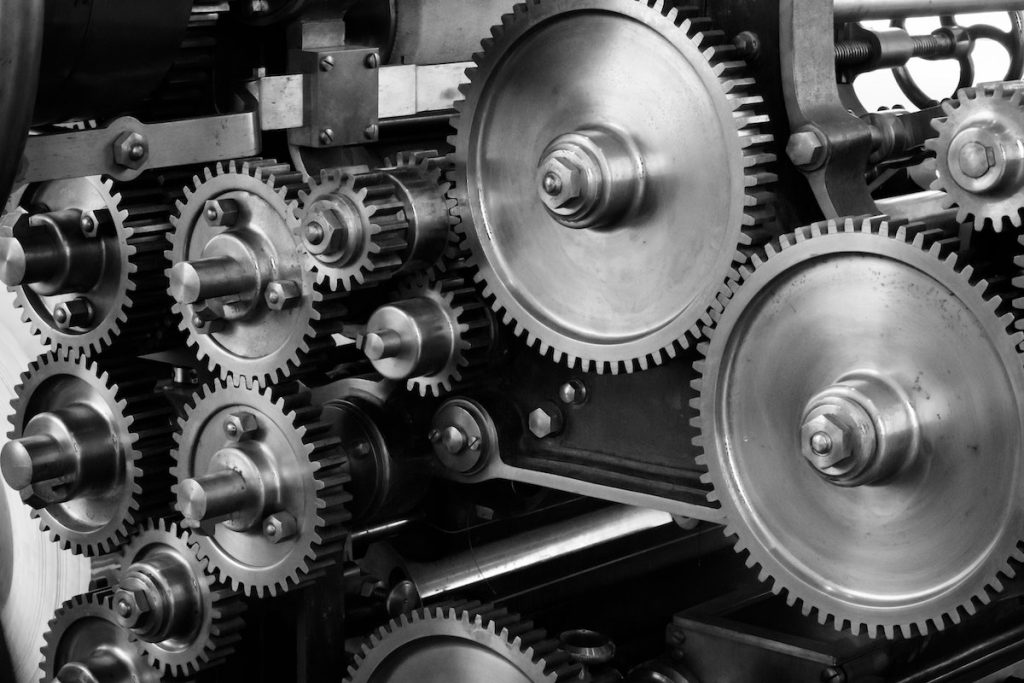• Employ automation and other electric equipment to improve the efficiency and quality of steel production.
• Implement lean manufacturing principles to optimize time, resources, and processes. Establish a standardized procedure for steel production.
• Adopt new technologies such as robotics, artificial intelligence, and cloud-based management systems to streamline workflows, expedite processes, and boost efficiency.
• Invest in training your employees to improve their productivity and professional development.
• Regularly inspect and test equipment, carry out preventive maintenance, keep an inventory of spare parts, etc.
Running a steel business is tough, demanding, and competitive. It’s not just about producing high-quality steel products. It’s about how efficiently you produce them. Optimizing efficiency is critical for businesses that want to stay ahead and survive the fierce competition. With this in mind, here are essential tips to help you optimize your efficiency in the steel industry:
Employ Automation and other Electric Equipment.
Automation is essential for optimizing efficiency in the steel industry. Investing in automated processes and equipment, such as the PRTG OPC UA server, significantly increases productivity, reduces manual labor, and ensures products are of the highest quality.
Additionally, there are other pieces of equipment that can help businesses become more efficient. Electric hoists and winches are good examples. They are reliable, easy to operate, and require minimal human intervention. They are perfect for steel businesses, such as those that require heavy steel coils to be lifted, transported, and stored.
Practice Lean Manufacturing.
Lean manufacturing is a business strategy that involves reducing waste, enabling faster delivery of products, and employing efficient processes. Employing lean principles in the steel industry optimizes time and resources, streamlines processes, and ultimately improves quality.
A standardized procedure for steel production, monitoring performance metrics, and reducing waste in material and energy consumption are good starting points for implementing lean manufacturing.
Additionally, practicing lean manufacturing also leads to improved communication and collaboration between employees. This ensures tasks are easily understood and efficiently carried out. This is especially beneficial for companies with more complex production processes.
Embrace Technology.

Technology plays a critical role in boosting efficiency in steel production. Adopting new technologies, such as robotics, artificial intelligence, and cloud-based management systems, streamline workflows, expedite processes, and improves overall efficiency.
Steel production is a complex process that can benefit immensely from technological advancements. Implementing automated systems, scheduling software, and digitizing business processes not only improves efficiency but the accuracy of operations as well.
Additionally, new technologies also offer advanced security systems to protect data from unauthorized access. This is important for companies that use customer information and need to ensure it is kept safe at all times.
Upskill Your Workforce.
Your employees are vital for optimizing efficiency in the steel industry. It’s essential to hire staff with the right skills, but it’s equally important to continue developing their skills. Invest in training to improve their productivity, enhance their professional development, and acquire new skills.
Continuous learning opportunities can help your employees become more efficient, perform better, and contribute to your business’s overall success. Encourage them to attend seminars, webinars, or training sessions to broaden their knowledge and stay up-to-date with industry advancements.
Improve Maintenance Practices.
Equipment failure is a common cause of downtime in the steel industry. Regular maintenance improves equipment productivity, prolongs its lifespan, and reduces operating costs. Here are the steps you need to take to ensure smooth equipment maintenance:
Establish a system for inspecting and testing equipment regularly.
Establishing a system for inspecting and testing equipment regularly can help you identify potential faults, diagnose wear and tear, and take corrective action before it fails.
Carry out preventive maintenance.
Preventive maintenance is the practice of taking steps to prevent equipment failure. It involves proactively monitoring for signs of failures, inspecting parts for wear and tear, and making adjustments as necessary.
Keep an inventory of spare parts.
Ensure that you have an adequate supply of spare parts to quickly replace worn-out or damaged components. This will help minimize downtime and ensure smooth operations. Keeping an inventory of spare parts can also help you save money by avoiding unnecessary repairs.
Train personnel on how to use the equipment.

Train your personnel on the proper use and maintenance of the equipment. This will help them better understand how to operate the machines, identify potential faults, and perform preventive maintenance tasks.
By taking steps to improve your maintenance practices, you can reduce the risk of equipment failure and optimize efficiency in the steel industry.
Optimizing efficiency in the steel industry is a complex process that requires careful planning and execution. Automation, lean manufacturing principles, technology advances, upskilling employees, and improved maintenance practices are all essential for achieving success. By following these tips and staying on top of industry trends, you can ensure your business remains competitive and profitable in the long term.


